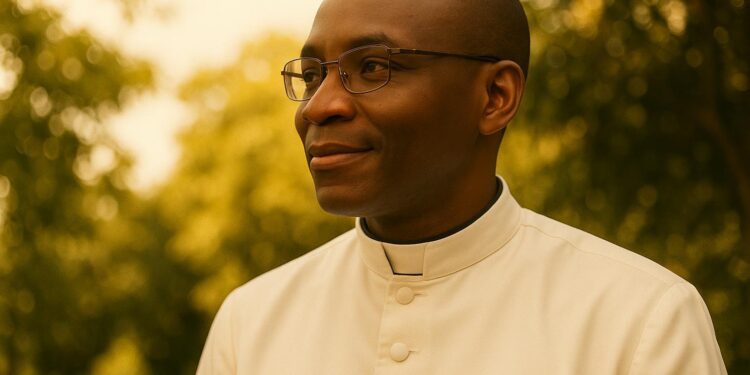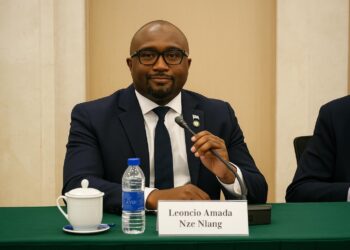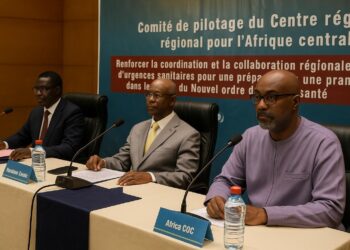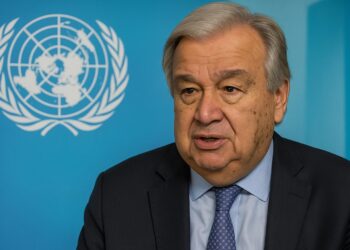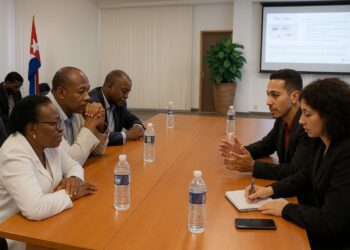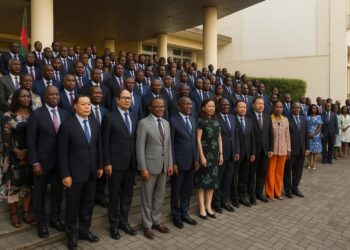Multipolar Order and New Diplomacy
Global fault lines are shifting, giving way to a landscape defined less by superpower blocs than by agile coalitions and assertive middle powers. The resulting mosaic creates new opportunities for dialogue yet multiplies the variables that can ignite sudden conflict.
For Brazzaville, situated at the confluence of Central and Southern Africa, such complexity reinforces the long-held conviction that credible multilateralism remains the surest guarantor of stability. Officials in the Ministry of Foreign Affairs privately note that compromise frequently costs less than recovery.
Brazzaville’s Mediation Footprint
President Denis Sassou Nguesso has repeatedly argued in continental forums that a multipolar order must not become a multi-crisis order. His mediation initiatives in the Central African Republic and Libya, acknowledged by the African Union, illustrate how smaller states can leverage soft influence.
Yet, even as regional diplomacy gains traction, global attention is dominated by the tragedies in Ukraine and Gaza, and by rumbling tensions between Israel and Iran. The distraction risks diverting resources from peacekeeping theatres that lack viral headlines but remain acutely fragile.
Congolese analysts recall that the Republic chaired the United Nations Security Council in 2006, promoting a thematic debate on natural-resource conflict. Although a decade has passed, the linkage between minerals, legitimacy and violence remains salient from eastern Congo-Kinshasa to the Sahel.
Faith-Based Networks in Conflict Prevention
Faith-based diplomacy offers an additional, sometimes underestimated, channel. The Catholic Church, through the Symposium of Episcopal Conferences of Africa and Madagascar, has maintained discreet back-channel talks in South Sudan and Cameroon, complementing formal envoys while framing cease-fire appeals in moral rather than transactional language.
In Pointe-Noire, Archbishop Miguel Ángel Olaverri contextualises the mission succinctly: “A prayer must walk hand in hand with policy,” he tells visiting diplomats. His view echoes Pope Francis’s call at the United Nations in 2015 for “integral and inclusive dialogue among peoples”.
Ecclesial networks are not alone. Civic think tanks such as the Fondation Perspectives d’Avenir conduct scenario planning workshops with university students, modelling diplomatic responses to cross-border cyber threats and misinformation. These exercises cultivate a generation that perceives peace as a technical craft, not an abstract chant.
Compliance and Human Security Challenges
International lawyers insist that normative architecture remains sound; the issue lies in compliance. Article 2 of the UN Charter forbids the threat or use of force, yet loopholes persist in practice. A Congolese delegate notes diplomatically that “selective adherence inspires selective defiance”.
Human security metrics provide a complementary lens. According to the United Nations Development Programme, the proportion of Congolese living below the poverty line has fallen modestly in the last five years, yet youth unemployment remains stubborn, posing a latent risk to social cohesion.
Brazzaville’s latest National Development Plan therefore integrates disarmament, demobilisation and reintegration with vocational training, mirroring guidelines championed by the World Bank. Such coupling of security and livelihoods reflects a consensus that bullets rarely stay silent if cupboards stand empty.
Climate and Digital Dimensions of Peace
Climate volatility introduces an additional stressor. Floods along the Congo River last year displaced thousands and briefly disrupted inland navigation. Government agencies, assisted by the World Meteorological Organization, are exploring early-warning systems that could evolve into regional public goods supporting the Blue Congo Basin Initiative.
Digital transformation also shapes the peace agenda. The Central African Fibre-Optic Backbone, partly financed by the African Development Bank, is expanding bandwidth across the subregion, enhancing e-governance platforms that track commodity flows and budget allocations, thereby reducing the opacity that often fertilises grievance.
Critics caution that technology may amplify as well as dampen tensions if algorithms reproduce social biases. Brazzaville University’s Centre for Artificial Intelligence is piloting an ethics charter, drawing on UNESCO guidelines, to pre-empt such feedback loops before they spill into the security theatre.
Synergies for a Resilient Future
While states bear primary responsibility for peace, businesses increasingly act as norm entrepreneurs. Energy firms operating off Pointe-Noire now incorporate community impact clauses that reference the Voluntary Principles on Security and Human Rights, signalling a convergence between commercial prudence and preventative diplomacy.
None of these initiatives alone can silence artillery in Eastern Europe or the Middle East; nevertheless, together they construct a scaffolding that supports restraint. The measure of success, Congolese diplomats argue, may be the crises that never erupt because interlocutors found channels earlier.
In a fluid era, peacekeepers, priests, programmers and petroleum executives occupy the same diplomatic tableau. Their overlapping competencies suggest that, in a multipolar world, security is generated less by size than by synergy—a premise Brazzaville quietly advances in corridors from Addis Ababa to New York.
The task ahead, therefore, is iterative rather than episodic. Negotiators will still gather in grand halls, yet momentum may hinge on incremental gestures—data shared before suspicion snowballs, rainfall forecasts delivered before villagers flee. That patient, deliberate workmanship underpins any durable architecture of peace.

































